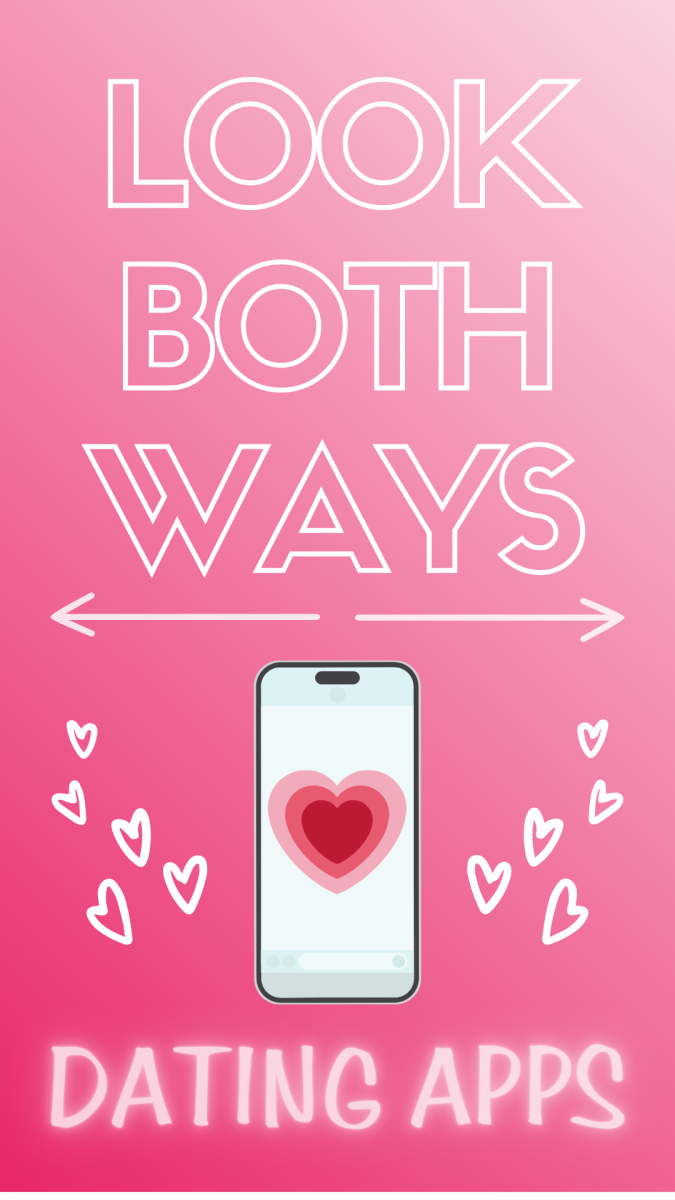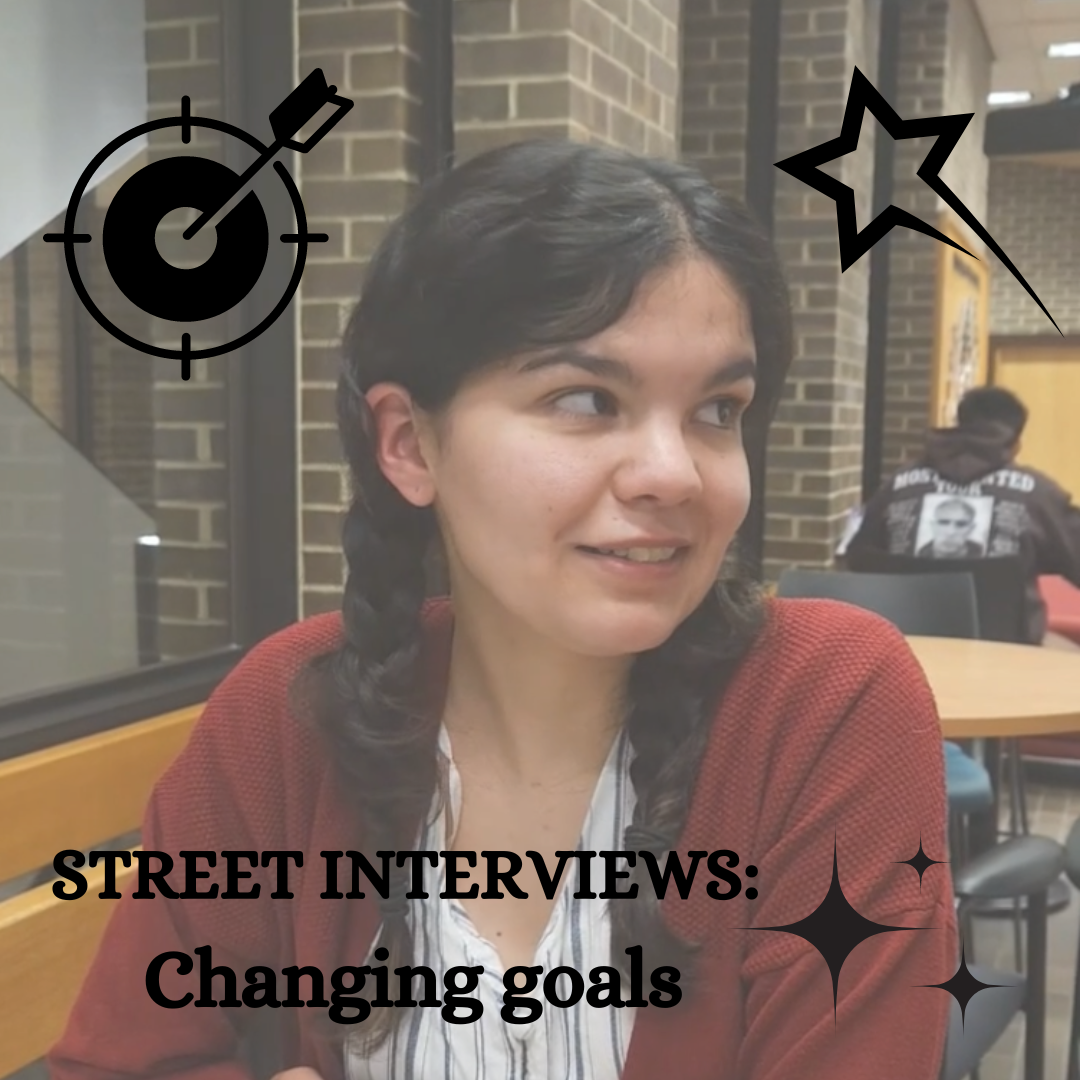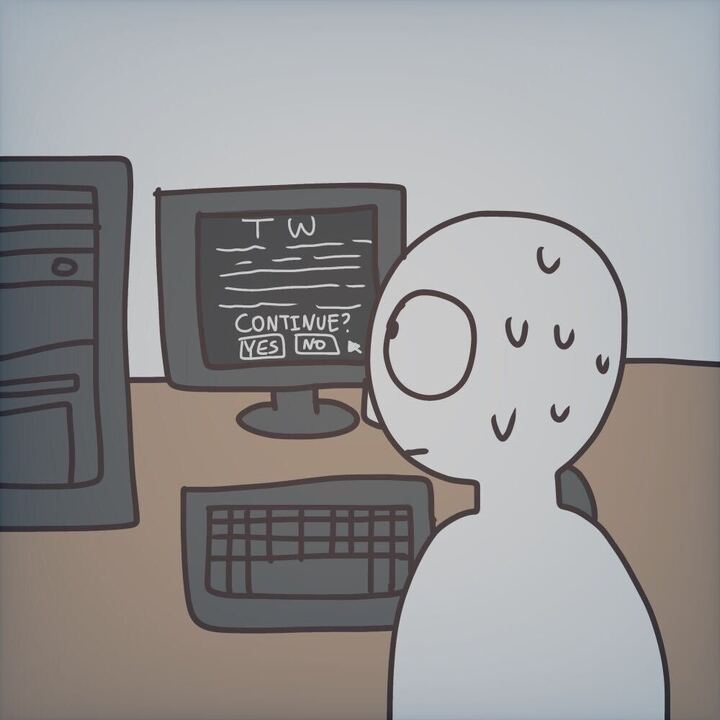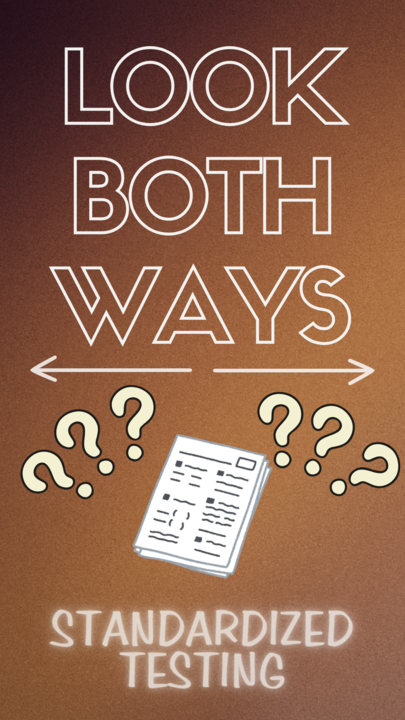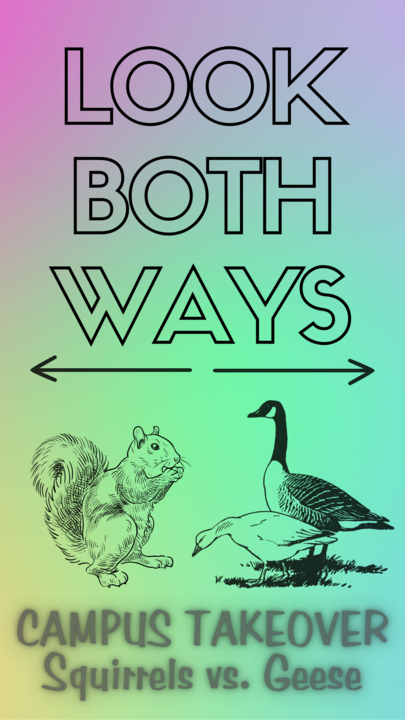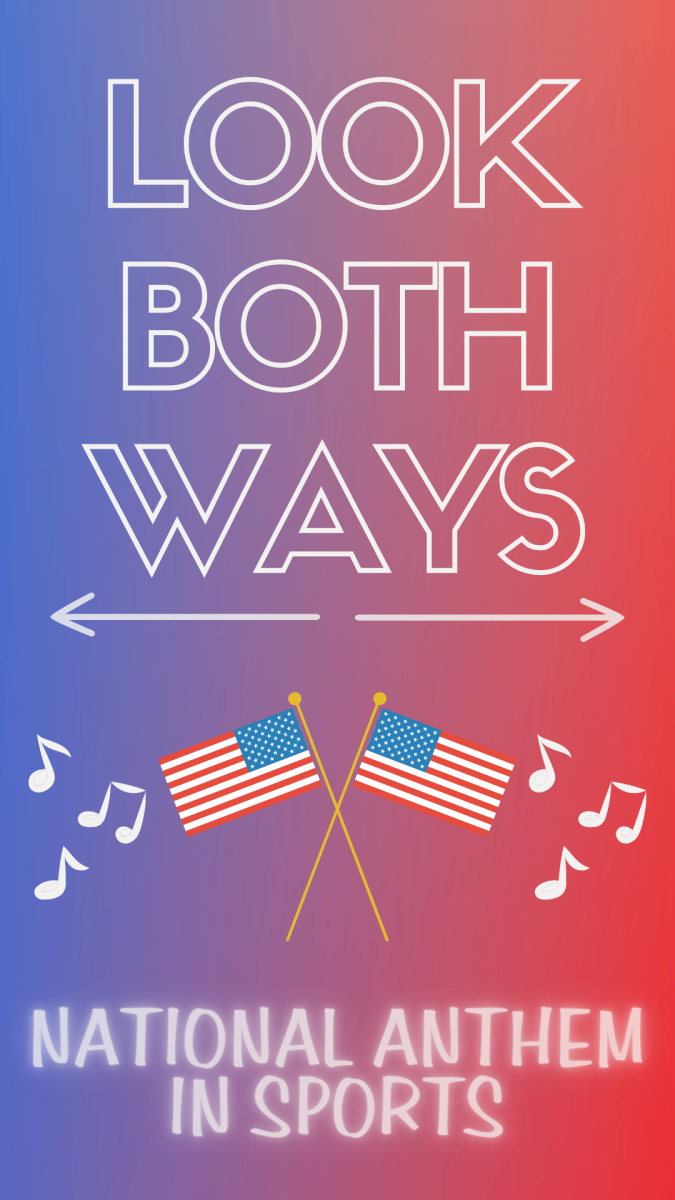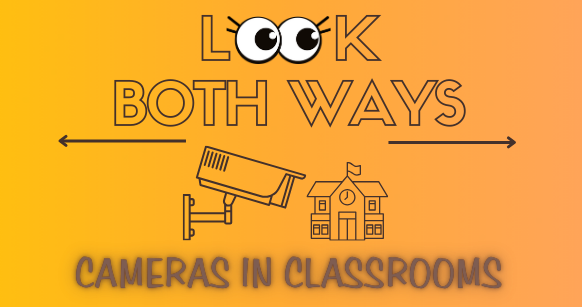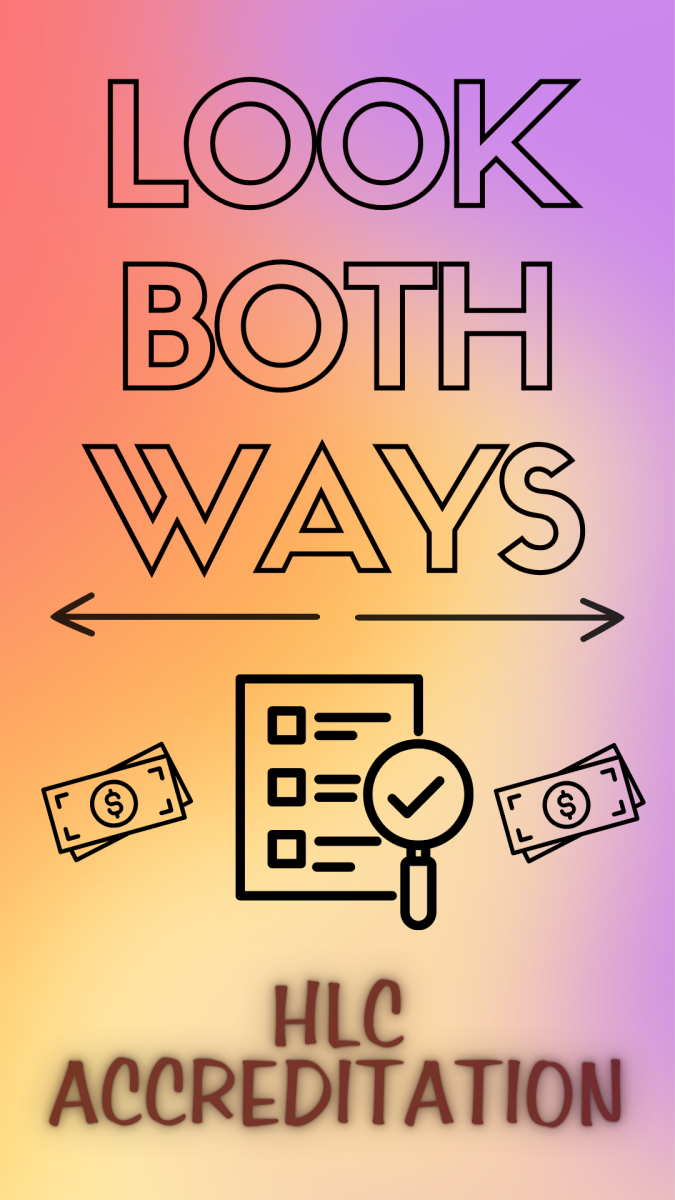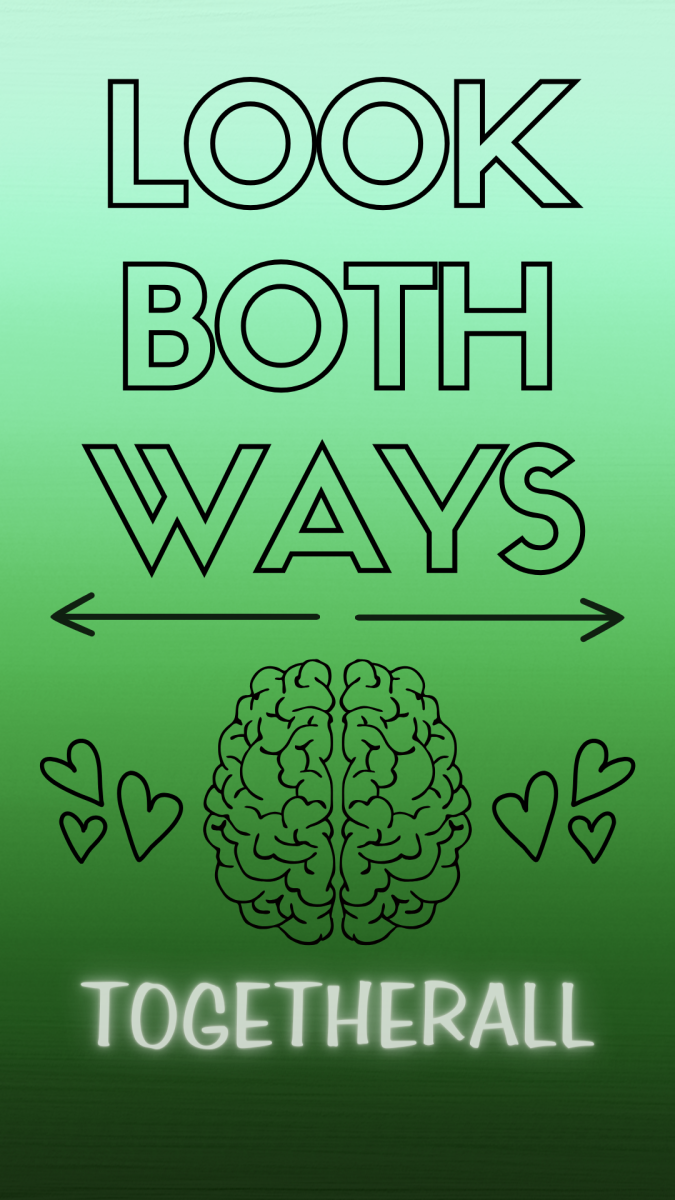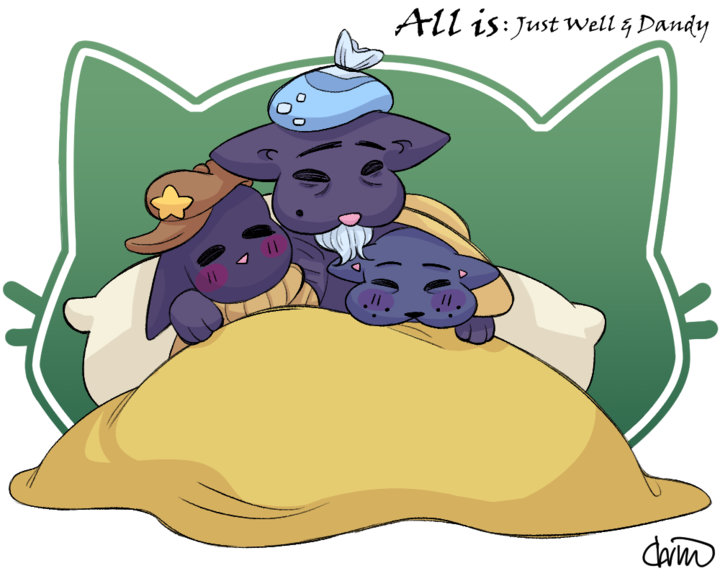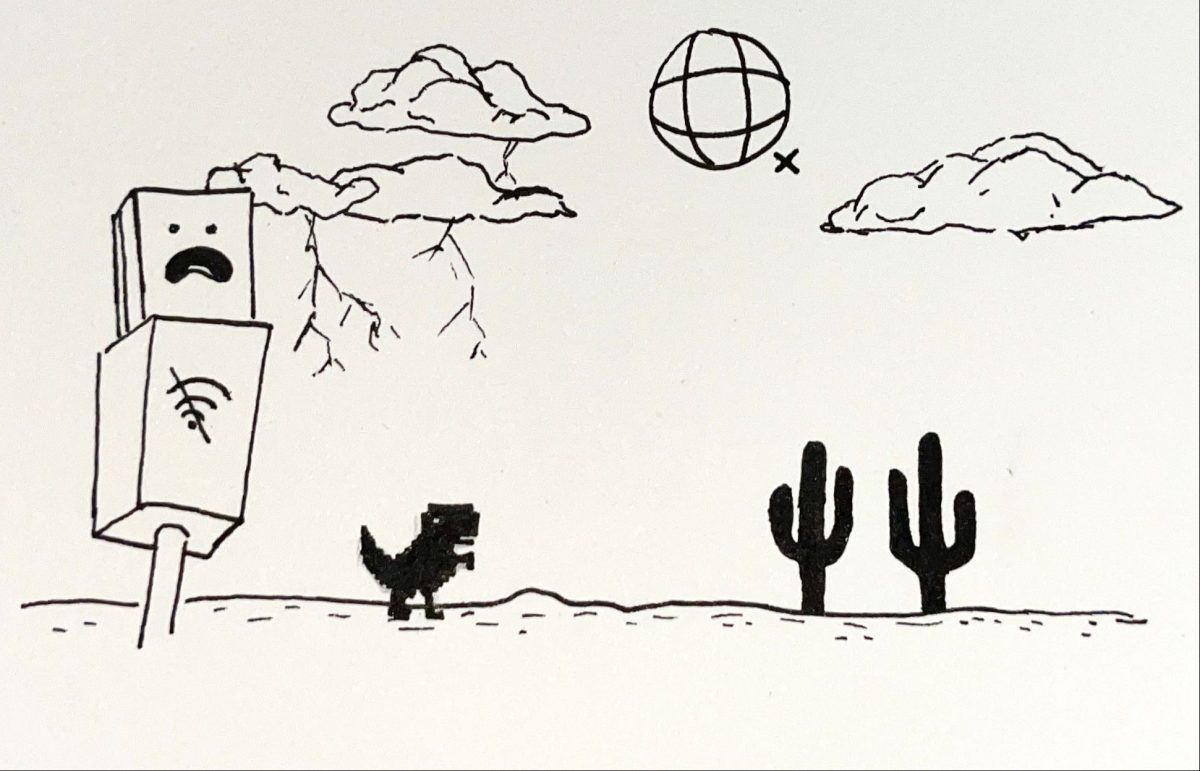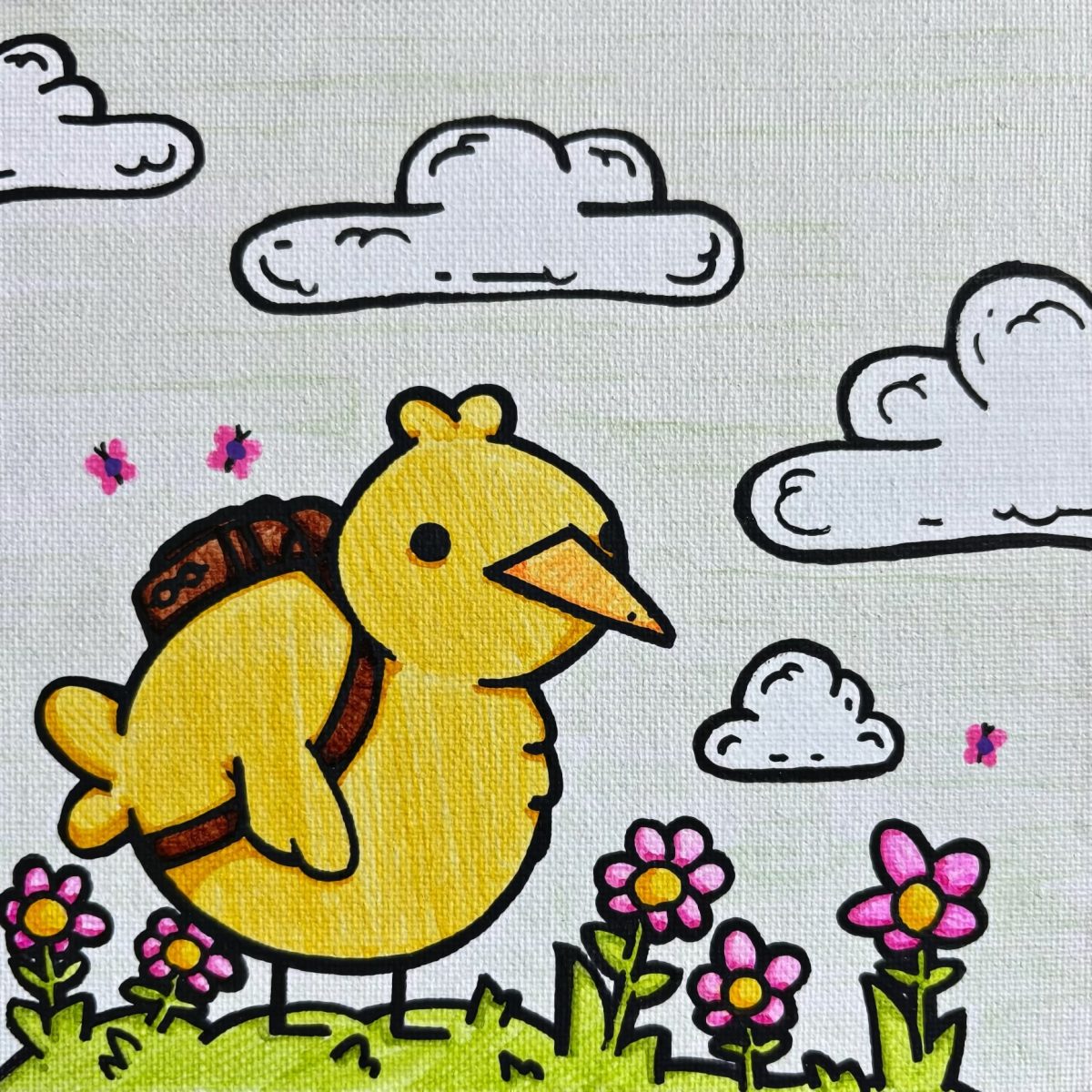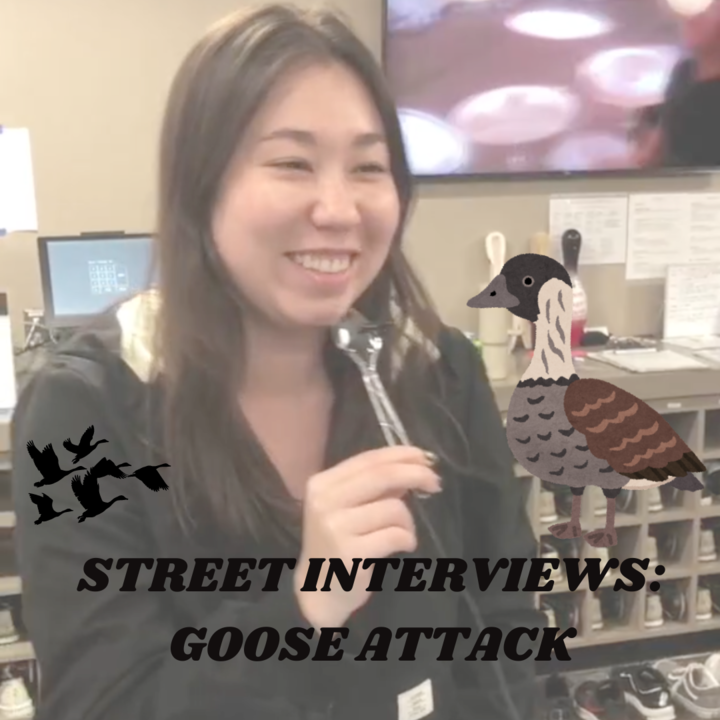DATING APPS AREN’T WORTH IT
By: Emily Beebe, Senior Opinion Columnist
Love is in the air, but it’s certainly not in dating apps. Dating apps are redundant and can lead to problems, not true love.
Dating apps such as Tinder, Bumble and Hinge have become a new norm. While dating apps could be good, meeting people in person is better and more meaningful.
A major downfall of online dating is catfishing, where individuals put false information or fake pictures on their dating profiles.
Catfishing leads dating app users to believe the person is who their profile says they are, even though they’re not. Around 43% of men have been catfished and 28% of women have been catfished, according to a survey by Sugar Cookie.
Catfishing can lead to numerous downfalls, most obviously deception and false identities. Trust is pivotal to forming a healthy relationship. If an individuals’ trust is shattered due to catfishing, then a relationship won’t work.
Furthermore, low self-esteem, self-doubt and emotional devastation are dangers of catfishing, according to Psych Central. Individuals might think they don’t deserve a relationship or aren’t worthy of one, due to the feelings of worthlessness and low self-esteem.
Ghosting is another downside of dating apps. Ghosting is when a relationship suddenly comes to an end. Whether it’s being ignored by your match, ghosting could damage mental health.
Although ghosting can occur in face-to-face meetings, through text, social media, etc., it may be more likely over dating apps. The first encounter in a relationship through a dating app is over text and not physical, which could increase the chance of getting ghosted.
When people get ghosted, they become upset and wonder what they did wrong. People on the receiving end of being ghosted experience more harm and distress than those who are more directly rejected, according to The Journal of Social Psychology.
Dating apps undermine the value of face-to-face connection. In a world overwhelmed by social media, it seems society has lost meaningful in-person connections.
Meeting people face-to-face, especially individuals you may want to spend the rest of your life with, is crucial. Face-to-face connections enhance and add meaning to a relationship, according to Psychology Today.
Dating apps are more trouble than they’re worth. It’s crucial that society forms meaningful human connections, especially in a digital world. Meeting people face-to-face is the best way to form a meaningful relationship.
DATING APPS ARE WORTH IT
By: Alberto Briones, Opinion Columnist
Limited social circles and time are common obstacles for students meeting new people. Dating apps are an acceptable option for college students with relationship challenges.
Dating apps enable college students to meet like-minded individuals outside the classroom and develop meaningful connections. Students can discover different people with a variety of experiences via simplistic apps.
Tinder, an app for dating, making friends and meeting new people, currently ranks number four in the lifestyle category of the App Store, followed by Hinge at number six and Bumble at number eight.
Busy schedules provide little time for dating in college. Dating apps make it simple for students to create profiles and browse possible matches.
A study in 2022 with over 6,000 respondents showed three-in-ten adults have used dating sites or apps. Tinder is most popular among adults under 30, with 46% of online dating users swiping left and right, according to the Pew Research Center.
Modern dating apps use algorithms to boost compatibility. These algorithms help college students when presented with too many options. By considering interests, values and preferences, algorithms improve matches.
For those under 30, one-in-five adults said they had met their current significant other through a dating site or app; 25% of LGB – Lesbian, Gay, Bisexual – adults said the same, according to the Pew Research Center.
Students may be on dating apps to find compatible dates before meeting in-person. Users can share their thoughts and emotions through chats, while building genuine connections.
Dating apps reflect campus diversity due to the variety of users. Such applications help students find friends or intimate partners with similar interests.
College students who connect on dating apps feel less pressured to enter relationships. Online dating lets individuals get to know one another before meeting in-person, making it more sincere and easygoing.
Finally, dating apps give college students a genuine view of modern relationships due to their ease, accessibility and diversity.
These apps are changing the dating landscape and becoming an integrated part of student life. It’s easier to meet a new person via these dating apps, which are not restricted by geographical location or a limited dating pool.



